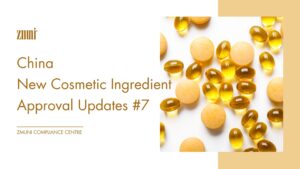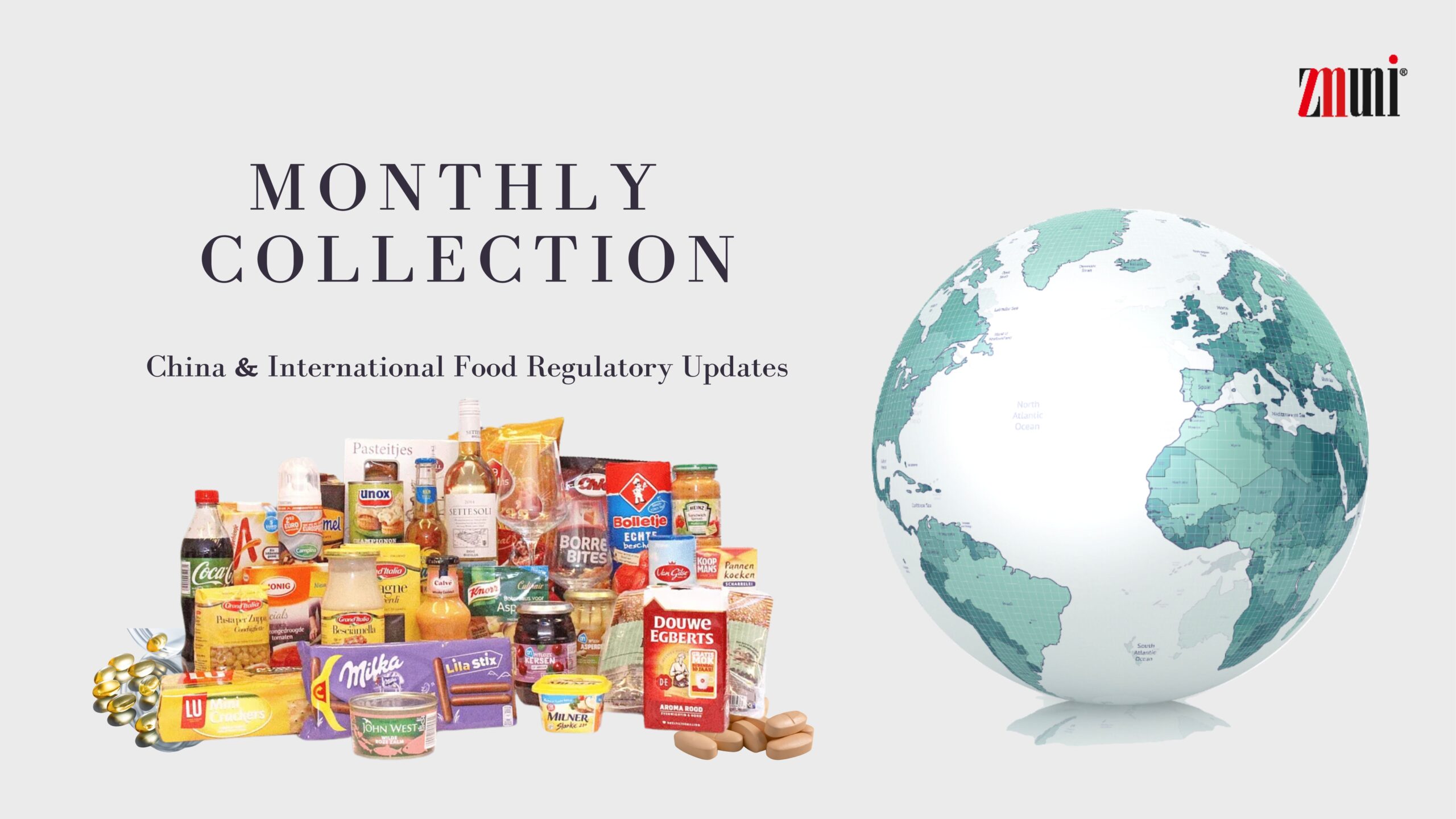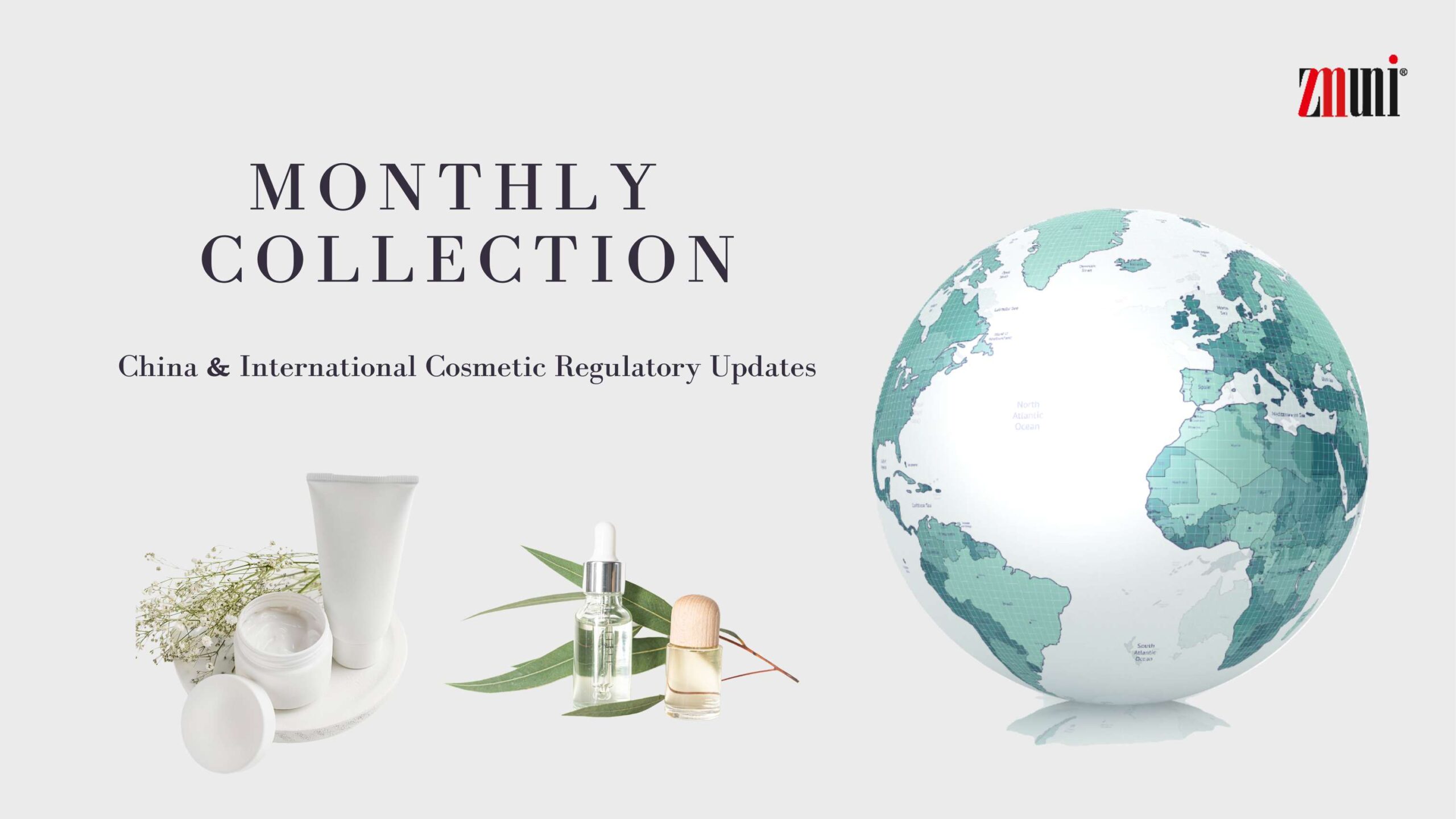+86 571 8659 2517
+86 180 5841 8258
info@zmuni.com

On May 9, 2025, China's National Center for Food Safety Risk Assessment (CFSA) issued a public consultation on two new food ingredients: Camelina Seed Oil and Elderberry Anthocyanins. The consultation is open until June 8, 2025, and comments or suggestions can be submitted to the official email address: xspyl@cfsa.net.cn. In recent years, anthocyanin-rich ingredients have attracted increasing interest in China. Between 2023 and 2025, several anthocyanin-based substances have been approved as new food ingredients, including blueberry anthocyanins (approved in 2023) and maqui berry anthocyanins (approved in 2025). The release of the current consultation on elderberry anthocyanins reflects the ongoing trend of expanding

As of May 2025, two official approval notices for “Three New Foods” have been released, covering seven new food ingredients and six new varieties of food additives. On May 7, 2025, the China National Health Commission (NHC) released a notice approving 11 substances as Three New Foods, including tow new food ingredients, 6 new food additives and 3 food-related products. New Food Ingredients Sakurapolyphenols and Ryepollen. New Food Additives 1. Enzyme preparations Name in EN Source Donor Peroxidase Aspergillusniger Marasmiusscorodonius Xylanase Aspergillusniger Rasamsoniaemersonii 2. Food additive with expanded usage scope: Magnesium oxide 3. Processing aid with expanded usage

If you would like to gain a clearer and more comprehensive understanding of the management of cosmetic ingredients in China, we invite you to explore our previous article — Cosmetic Ingredients in China: Your Guide to the Latest Compliance Requirements. It provides helpful insights to build a solid foundation before diving into this topic. From April 29 to May 9, 2025, 5 new cosmetic ingredients were notified with the China National Medical Products Administration (NMPA). They include: The technical requirements for the 5 new cosmetic ingredients mentioned above have not been disclosed, and they have not yet entered the safety monitoring period.

On May 6, 2025, China National Institutes for Food and Drug Control (NIFDC) of China released the 2024 Annual Review Report on Cosmetics. The Report provides an overview of the NIFDC's continued efforts in 2024 to advance reform of the cosmetic review system, support innovation in cosmetic ingredients, and promote the implementation of safety assessment frameworks. It also offers a detailed analysis of registration and notification data for cosmetics and new cosmetic ingredients, reflecting current trends and developments within China’s cosmetic industry. Surge in Special Cosmetics Approvals In China, special cosmetics refer to products that claim the functions of hair

This article summarizes the regulatory developments related to food within China and internationally in April 2025, with an emphasis on updates in regulations concerning new food ingredients, food additives, feed additives, and health foods. China Food Regulatory Updates Special Food In April 2025, the National Technical Committee on Standardization of Special Foods (TC466) released eight national standards for health foods. They are: "Determination of Pantothenic Acid in Health Foods" (GB/T 22246-2025) "Determination of Inositol in Health Foods" (GB/T 45242-2025) "Determination of Thiamine, Riboflavin, Pyridoxine, Niacin, Nicotinamide and Caffeine in Health Foods" (GB/T 45243-2025) "Determination of Icariin in Health Foods"

The global cosmetics regulatory environment continues to evolve. To help businesses stay updated with regulatory changes, ZMUni Compliance Center regularly releases a monthly recap of global cosmetics regulations. This article covers the regulatory developments related to cosmetics within China and globe in April 2025, with an emphasis on updates in cosmetic ingredient, cosmetic safety assessment, labeling, etc. China Cosmetic Regulatory Updates New Cosmetics Ingredients (NCI) Notification In April 2025, 16 new cosmetic ingredients were notified with the China National Medical Products Administration (NMPA). They include: The technical requirements for the 16 new cosmetic ingredients mentioned above have not been disclosed, and they have

On April 30, 2025, China National Medical Products Administration (NMPA) issued a new supplementary testing method: BJH 202501 Determination of Meprednisone in Cosmetics. This method outlines the qualitative and quantitative analysis of Meprednisone (CAS No.1247-42-3) in various categories of cosmetics, such as liquid (water, oil), cream and milk, gel, and wax-based products. Meprednisone is a type of glucocorticoid, with common derivatives including methylprednisolone acetate and related compounds. Glucocorticoids and their by-products are known for their skin-lightening and anti-allergic properties. When added to cosmetics, these substances can significantly enhance effects such as acne reduction, anti-inflammation, pigmentation fading, and whitening. However, prolonged use may

On April 18, 2025, China's General Administration of Customs (GACC) published its list of non-compliant imported food products for March 2025. A total of 231 batches from 40 countries and regions were denied entry, marking a 13.5% decrease compared to the previous month and an 8.0% decline year-on-year. Significantly, this is the fourth consecutive month of decline since the number of rejected imports peaked in November 2024. Analysts suggest the downward trend may be influenced by external factors, including adjustments to U.S. tariff policies. The majority of non-compliant imports came from the U.S. (23%), Spain ranked second (9.1%), Brazil (8.2%), and
+86 571 8659 2517
+86 180 5841 8258
info@zmuni.com